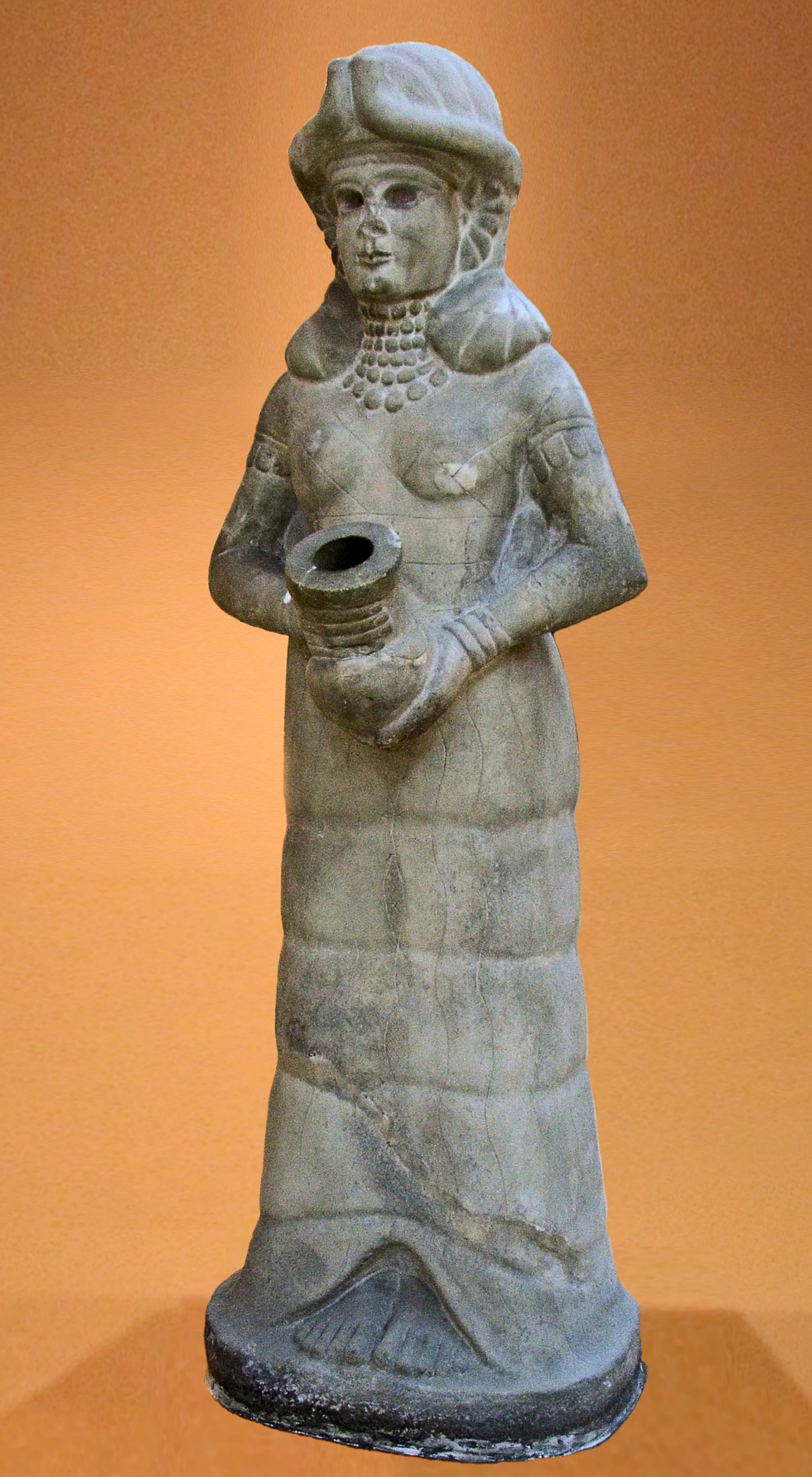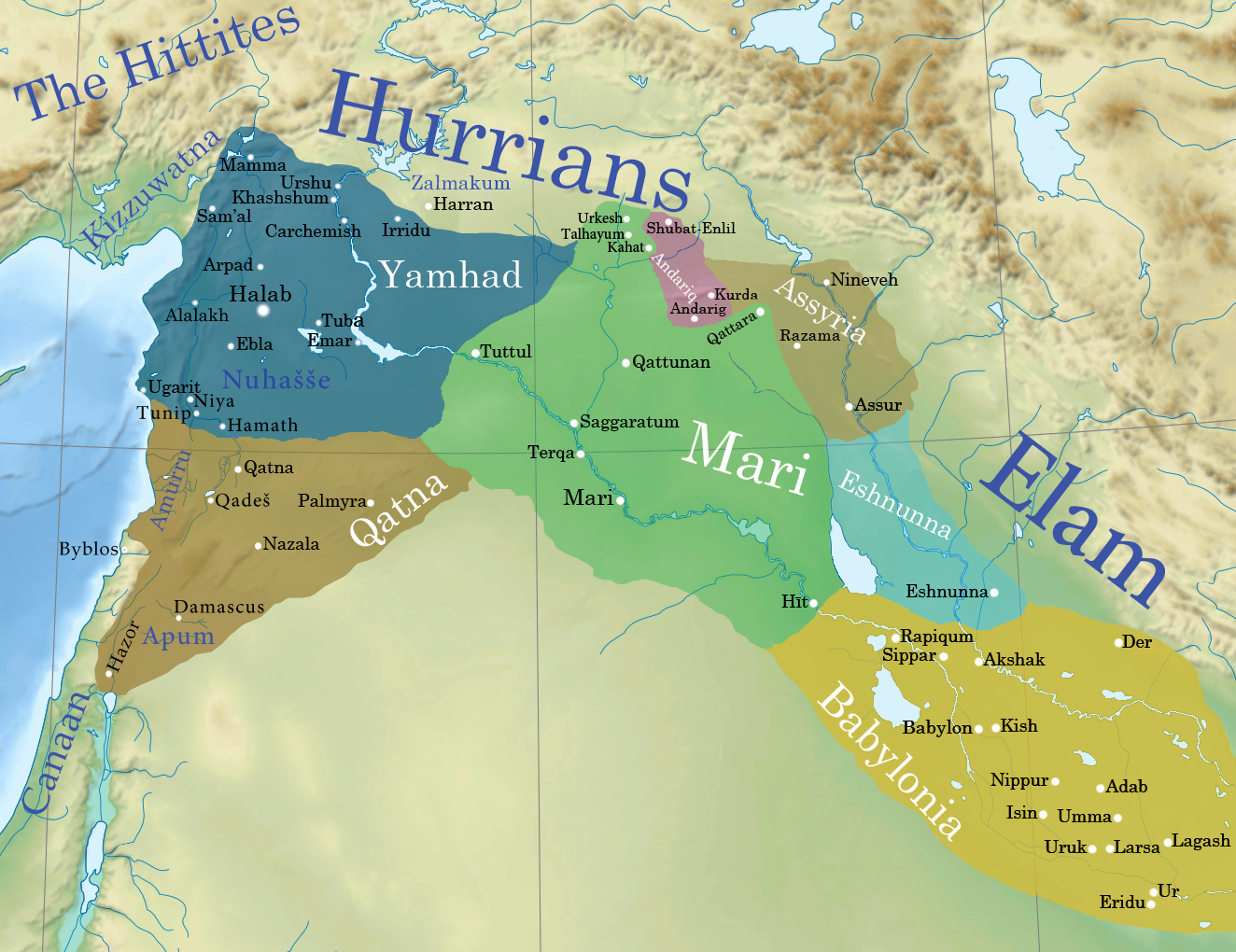|
Iagitlim
Iagitlim was king of Mari, Syria during the 19th century BC. He was probably of Amorite origin. Little is known about his reign except that he came into conflict with his neighbour Ila-kabkabu of Terqa after the two had first been allies. Iagitlim was succeeded by his son Iakhdunlim Yahdunlim (or ''Yakhdunlim, Yahdun-Lim'') was the king of Mari probably in 1820—1796 BC. He was of Amorite origin, and became king after the death of his father Iagitlim. Yahdunlim built Mari up to become one of the major powers of the region. .... Amorite kings Kings of Mari 19th-century BC rulers 19th-century BC people {{Syria-bio-stub ... [...More Info...] [...Related Items...] OR: [Wikipedia] [Google] [Baidu] |
Ila-kabkabu
The Amorite name Ila-kabkabu appears twice in the Assyrian King List: * Ila-kabkabu ( akk, 𒀭𒆏𒅗𒁉, ILA-KAB-ka-bi) appears within the Assyrian King List among the “kings whose fathers are known” (alongside both: Ila-kabkabu's father and predecessor, Yazkur-el; Ila-kabkabu's son and successor, Aminu), * Ila-kabkabu of Terqa is also mentioned as the father of one other king named within the Assyrian King List: Šamši-Adad I. Šamši-Adad I had not inherited the Assyrian throne from his father, but had instead been a conqueror. Ila-kabkabu had been an Amorite king not of Aššur (within Assyria), instead; Ila-kabkabu had been king of Terqa (within Syria) during the same time as that of the King Iagitlim of Mari (also within Syria.) According to the ''Mari Eponyms Chronicle'', Ila-kabkabu had seized Shuprum (possibly c. 1790 BC), then Šamši-Adad I had, “entered his father's house,” (e.g.. Šamši-Adad I had succeeded Ila-kabkabu as the king of Terqa, within the f ... [...More Info...] [...Related Items...] OR: [Wikipedia] [Google] [Baidu] |
Iakhdunlim
Yahdunlim (or ''Yakhdunlim, Yahdun-Lim'') was the king of Mari probably in 1820—1796 BC. He was of Amorite origin, and became king after the death of his father Iagitlim. Yahdunlim built Mari up to become one of the major powers of the region. He led a successful campaign to the coast of the Mediterranean. Reign Yahdun-Lim started his reign by subduing seven of his rebelling tribal leaders, and rebuilding the walls of Mari and Terqa in addition to building a new fort which he named Dur-Yahdun-Lim. Yahdun-Lim's kingdom was threatened by incursions from various nomad tribes, such as the Canaanites, but he was able to subjugate them and force them to pay tribute. After having established internal peace, he built a temple to the god Shamash. He then expanded west and claimed to have reached the Mediterranean, however he later had to face a rebellion by the ''Banu-Yamina'' nomads who were centered at Tuttul, and the rebels were supported by Yamhad's king Sumu-Epuh, whose int ... [...More Info...] [...Related Items...] OR: [Wikipedia] [Google] [Baidu] |
Mari, Syria
Mari (Cuneiform: , ''ma-riki'', modern Tell Hariri; ar, تل حريري) was an ancient Semitic city-state in modern-day Syria. Its remains form a tell 11 kilometers north-west of Abu Kamal on the Euphrates River western bank, some 120 kilometers southeast of Deir ez-Zor. It flourished as a trade center and hegemonic state between 2900 BC and 1759 BC. The city was purposely built in the middle of the Euphrates trade routes between Sumer in the south and the Eblaite kingdom and the Levant in the west. Mari was first abandoned in the middle of the 26th century BC but was rebuilt and became the capital of a hegemonic East Semitic state before 2500 BC. This second Mari engaged in a long war with its rival Ebla and is known for its strong affinity with Sumerian culture. It was destroyed in the 23rd century BC by the Akkadians, who allowed the city to be rebuilt and appointed a military governor (''Shakkanakku''). The governors became independent with the disint ... [...More Info...] [...Related Items...] OR: [Wikipedia] [Google] [Baidu] |
Amorite
The Amorites (; sux, 𒈥𒌅, MAR.TU; Akkadian: 𒀀𒈬𒊒𒌝 or 𒋾𒀉𒉡𒌝/𒊎 ; he, אֱמוֹרִי, 'Ĕmōrī; grc, Ἀμορραῖοι) were an ancient Northwest Semitic-speaking people from the Levant who also occupied large parts of southern Mesopotamia from the 21st century BC to the end of the 17th century BC, where they established several prominent city-states in existing locations, such as Isin, Larsa and later notably Babylon, which was raised from a small town to an independent state and a major city. The term in Akkadian and Sumerian texts refers to the Amorites, their principal deity and an Amorite kingdom. The Amorites are also mentioned in the Bible as inhabitants of Canaan both before and after the conquest of the land under Joshua. Origin In the earliest Sumerian sources concerning the Amorites, beginning about 2400 BC, the land of the Amorites ("the ''Mar.tu'' land") is associated not with Mesopotamia but with the lands to the west o ... [...More Info...] [...Related Items...] OR: [Wikipedia] [Google] [Baidu] |
Amorite Kings
The Amorites (; sux, 𒈥𒌅, MAR.TU; Akkadian: 𒀀𒈬𒊒𒌝 or 𒋾𒀉𒉡𒌝/𒊎 ; he, אֱמוֹרִי, 'Ĕmōrī; grc, Ἀμορραῖοι) were an ancient Northwest Semitic-speaking people from the Levant who also occupied large parts of southern Mesopotamia from the 21st century BC to the end of the 17th century BC, where they established several prominent city-states in existing locations, such as Isin, Larsa and later notably Babylon, which was raised from a small town to an independent state and a major city. The term in Akkadian and Sumerian texts refers to the Amorites, their principal deity and an Amorite kingdom. The Amorites are also mentioned in the Bible as inhabitants of Canaan both before and after the conquest of the land under Joshua. Origin In the earliest Sumerian sources concerning the Amorites, beginning about 2400 BC, the land of the Amorites ("the ''Mar.tu'' land") is associated not with Mesopotamia but with the lands to the west o ... [...More Info...] [...Related Items...] OR: [Wikipedia] [Google] [Baidu] |
Kings Of Mari
Kings or King's may refer to: *Monarchs: The sovereign heads of states and/or nations, with the male being kings *One of several works known as the "Book of Kings": **The Books of Kings part of the Bible, divided into two parts **The ''Shahnameh'', an 11th-century epic Persian poem **The Morgan Bible, a French medieval picture Bible **The Pararaton, a 16th-century Javanese history of southeast Asia *The plural of any king Business * Kings Family Restaurants, a chain of restaurants in Pennsylvania and Ohio *Kings Food Markets, a chain supermarket in northern New Jersey * King's Favourites, a brand of cigarettes *King's Variety Store, a chain of stores in the USA *King's (defunct discount store), a defunct chain of discount stores in the USA Education *King's College (other), various colleges * King's School (other), various schools * The King's Academy (other), various academies Electoral districts *King's (New Brunswick electoral district) (1867–19 ... [...More Info...] [...Related Items...] OR: [Wikipedia] [Google] [Baidu] |
19th-century BC Rulers
The 19th (nineteenth) century began on 1 January 1801 ( MDCCCI), and ended on 31 December 1900 ( MCM). The 19th century was the ninth century of the 2nd millennium. The 19th century was characterized by vast social upheaval. Slavery was abolished in much of Europe and the Americas. The First Industrial Revolution, though it began in the late 18th century, expanding beyond its British homeland for the first time during this century, particularly remaking the economies and societies of the Low Countries, the Rhineland, Northern Italy, and the Northeastern United States. A few decades later, the Second Industrial Revolution led to ever more massive urbanization and much higher levels of productivity, profit, and prosperity, a pattern that continued into the 20th century. The Islamic gunpowder empires fell into decline and European imperialism brought much of South Asia, Southeast Asia, and almost all of Africa under colonial rule. It was also marked by the collapse of the large ... [...More Info...] [...Related Items...] OR: [Wikipedia] [Google] [Baidu] |




